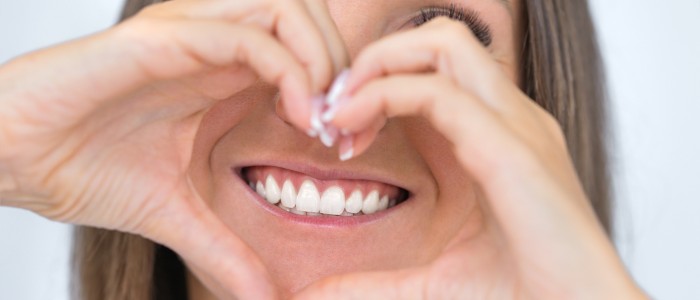Causes of Bad Breath and How to Avoid It

Bad breath, medically known as halitosis, can be embarrassing and affect your self-esteem. It’s a common oral health issue that can result from various causes, both oral and non-oral. In this comprehensive guide, we will explore the primary causes of bad breath and provide practical tips on how to avoid it.
Causes of Bad Breath
-
- Poor Oral Hygiene: Inadequate brushing and flossing can lead to the accumulation of food particles and bacteria in your mouth, causing an unpleasant odor. These bacteria release sulfur compounds that contribute to bad breath.
- Dental Issues: Dental problems such as cavities, gum disease, and oral infections can produce a foul smell. These conditions create an ideal environment for odor-causing bacteria to thrive.
- Tongue Bacteria: The surface of the tongue can harbor bacteria that release sulfur compounds. If the tongue is not cleaned regularly, it can be a significant source of bad breath.
- Dry Mouth (Xerostomia): Saliva plays a crucial role in rinsing away bacteria and food particles in the mouth. When you have a dry mouth, often caused by medications, medical conditions, or dehydration, bad breath can develop due to a lack of saliva.
- Tobacco Use: Smoking and chewing tobacco not only leave their own distinctive odor but also dry out the mouth, contributing to bad breath.
- Diet: Certain foods like garlic, onions, and spices contain compounds that, after digestion, are absorbed into the bloodstream and released through the lungs, leading to bad breath.
- Medical Conditions: Some underlying medical conditions, including respiratory infections, acid reflux (GERD), and diabetes, can cause bad breath as a secondary symptom.
- Poorly Fitting Dental Appliances: Dentures or dental braces that don’t fit well can trap food particles and bacteria, leading to bad breath.
- Stress: Stress can lead to changes in your mouth, such as dry mouth and reduced saliva production, which can contribute to bad breath.
How to Avoid Bad Breath
-
- Maintain Excellent Oral Hygiene: Brush your teeth at least twice a day with fluoride toothpaste and use dental floss to clean between your teeth and along the gumline. Also, consider using an antimicrobial mouthwash to kill bacteria.
- Clean Your Tongue: Use a tongue scraper or your toothbrush to gently clean your tongue’s surface regularly. This removes bacteria and debris that can contribute to bad breath.
- Regular Dental Check-ups: Visit your dentist for regular check-ups and professional cleanings. Your dentist can identify and address dental issues that may cause bad breath.
- Stay Hydrated: Drink plenty of water throughout the day to keep your mouth moist and help wash away odor-causing bacteria.
- Chew Sugarless Gum or Mints: Chewing sugarless gum or mints can stimulate saliva production and temporarily mask bad breath.
- Limit Odorous Foods: Reduce your consumption of foods like garlic and onions that are known to cause bad breath.
- Quit Tobacco: If you smoke or use tobacco products, quitting can improve your breath and overall health.
- Manage Stress: Stress reduction techniques such as meditation and exercise can help minimize the impact of stress on your oral health.
- Manage Medical Conditions: If you have a medical condition contributing to bad breath, consult with your healthcare provider for proper management and treatment.
- Saliva Stimulants: If you suffer from dry mouth, consider using sugar-free lozenges or chewing gum to stimulate saliva production. Your dentist may also recommend saliva substitutes.
- Dental Appliance Care: If you wear dental appliances like dentures or braces, ensure they are cleaned properly to prevent the accumulation of bacteria and food particles.
- Rinse After Meals: Rinsing your mouth with water after meals can help remove food particles and reduce the risk of bad breath.
- Use Sugar-Free Products: Opt for sugar-free gum, mints, and mouthwash to avoid providing additional food for bacteria.
When to Seek Professional Help
If you’ve tried the above strategies and are still experiencing persistent bad breath, it’s essential to consult a dentist or a healthcare professional. They can help identify any underlying oral health issues or medical conditions that may be contributing to the problem. In some cases, additional treatments or therapies may be necessary to resolve chronic bad breath.
Bad breath can be a source of discomfort and embarrassment, but it’s a condition that can often be addressed with proper oral care and lifestyle adjustments. By maintaining good oral hygiene, addressing dental issues promptly, staying hydrated, and making healthy lifestyle choices, you can significantly reduce your risk of developing halitosis. If you continue to experience persistent bad breath, don’t hesitate to seek professional help to identify and treat any underlying causes. Remember, fresh breath is not just a matter of good hygiene; it also contributes to your overall confidence and well-being.
For more information or to request an appointment, please click here or call our office at 856-343-4020.
